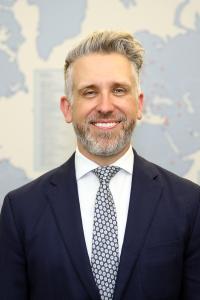Editorial - International Reports
International Reports
Ultimately, the global strengthening of health systems in all countries will pay off, as Christopher Elias argues in the subsequent interview. Governmental and civil society actors must work together with representatives of business to guarantee that developing and emerging countries in particular enjoy basic medical services. Peter Hefele says that the people in these countries are most sensitive to the relationship between climate change and health. Climatic changes have both a direct and indirect impact on human health. Thus, it is important to focus more sharply on a Global Health policy that is resilient in the face of climate change.
Examining specific developing and emerging countries shows how governmental failure increases the risk of epidemics and pandemics spreading. While the HIV crisis in South Africa seems to be under control despite significant shortcomings and current increases in new infections, as Michaela Braun relates, the Ebola crisis in the Democratic Republic of the Congo, about which Benno Müchler writes, is more acute than ever. In both cases, governmental failure can be identified as one of the obstacles to successfully combatting these diseases. The international community of nations must draw lessons from this and develop proactive mechanisms that contain local crises and prevent the cross-regional spread of diseases by enhancing structures on the ground.
Veronika Ertl and Martina Kaiser also believe that it is the responsibility of the international community to build and maintain suitable local structures in order to achieve global sustainability goals in the area of health. These goals, which incorporate health as a factor, are especially difficult to achieve in fragile countries characterised by conflict such as Venezuela and Yemen.
In recent years, Germany has assumed international responsibility in the area of Global Health. The Federal Chancellor and her Health Ministers, Hermann Gröhe and Jens Spahn, have greatly increased Germany’s commitment in this policy field. There is no doubt that all regions of the world have to overcome different health policy tasks. However, since the world has grown into a lively exchange of people and goods, the consequences of Global Health risks cannot be limited to individual regions. The articles in this issue clearly show that ultimately every country must intensify its cooperation in the health sector. This is the only way to effectively improve the health of all people worldwide. Germany, with its expertise and innovative capabilities, can continue to assume international responsibility that lies in its own interests: Health is an important prerequisite for economic and social development, security, democracy, a life of dignity, and for tackling root causes of migration and flight.
I wish you a stimulating read.
Yours,




